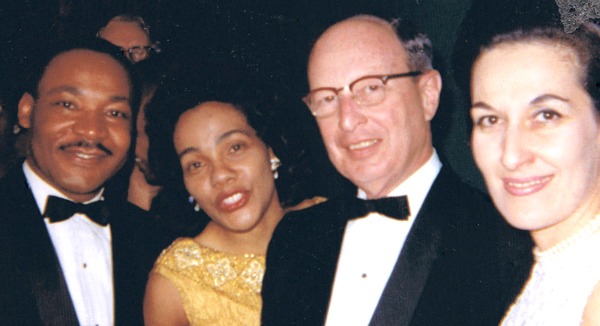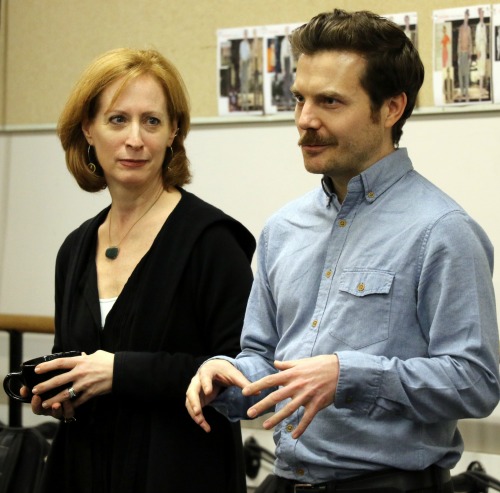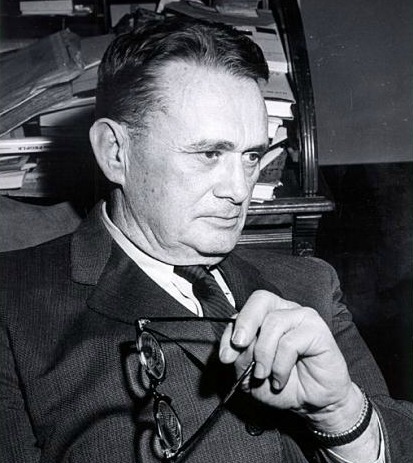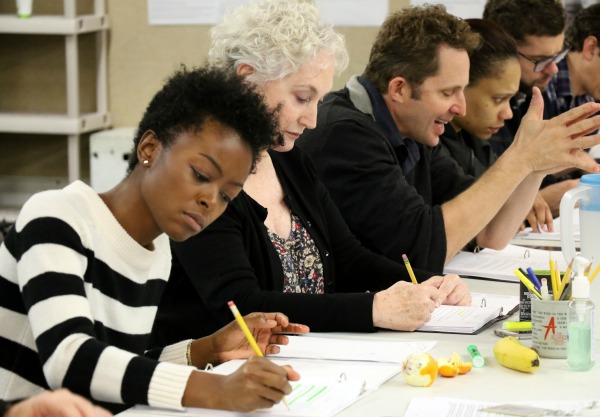THE 1958 BOMBING OF ATLANTA’S TEMPLE COMES ALIVE IN A WORLD PREMIERE STAGING AT THE ALLIANCE THEATRE
::
“The Temple Bombing” begins previews through Feb. 28, opens March 1 and runs through March 12 on the Alliance Theatre’s mainstage. Details, tickets HERE or at 404.733.5000.
::
“TERROR IS AT HAND.” That statement could be made today, but in this case, the words belonged to Rabbi Jacob Rothschild, spoken in response to a hate crime that took shook Atlanta from Peachtree Street to Sweet Auburn and changed the city forever.

In the dark hours of Oct. 12, 1958, a firebomb exploded in the Hebrew Benevolent Congregation Synagogue, aka the Temple. It blew a hole in a side wall, destroying an assembly hall, office and classrooms. The sanctuary escaped damage and no one was on-site to be hurt or killed, but the attack became the most violent episode in civil-rights-era Atlanta.
It put “the city too busy to hate,” as Mayor William B. Hartsfield called it, on edge. The Jewish community, Rabbi Rothschild said, had “an undercurrent of fear. A mood of despair. A feeling of insecurity and uncertainty.”

A real-life drama unfolded, with an array of characters, from Rothschild and his wife, Janice, to congregants, investigators, newspaper reporters, community members and the four men eventually indicted.
Mayor Hartsfield went to the scene as soon as he heard the news. “Whether they like it or not, every political rabble-rouser is the godfather of these cross-burners and dynamiters who sneak about in the dark and give a bad name to the South,” he said. “It is high time the decent people of the South rise and take charge.”
A historic moment, an anniversary
Now, almost 60 years later, audiences can contemplate that sad slice of Atlanta history in The Temple Bombing, a new work at the Alliance Theatre that coincides with the synagogue’s 150th anniversary.

The drama comes from an Alliance partnership with New York’s award-winning Tectonic Theater Project (The Laramie Project). Tectonic artistic associate Jimmy Maize, a self-described jack-of-all-trades, was enlisted to shape the piece through Moment Work, a process pioneered by Tectonic. He is both playwright and the play’s director.
Maize dug deep into the story. How did the rabbi and his wife cope that morning and afterward? How did local news cover the story? How did the community respond? What was the Rev. Martin Luther King, Jr.’s response? What words came from Ralph McGill, the legendary editor of The Atlanta Constitution, an eventual Pulitzer Prize winner?
Maize, 36, hadn’t known of the bombing but, in his words, became “riveted” and saw tremendous potential for a theater piece.

“I love to take an incident that didn’t make the history books, especially a story that was turning into a footnote,” he says, “but you realize it speaks to now. You do smack your head wondering why it wasn’t already a work of art.”
Atlanta author Melissa Fay Greene did some of the exhaustive legwork for the drama with her 1996 book The Temple Bombing. Full of interviews (and therefore potential characters and lines of dialogue), Greene’s book is cited as the main inspiration for the play. Maize also did his own interviews and studied court transcripts, news stories, Rothschild sermons and more.
He weighed everything from MLK to the murders of Emmett Till (in 1955) and Leo Frank (in 1915) all the way forward to today’s Black Lives Matter movement. One invaluable resource: Janice Rothschild Blumberg, married to the rabbi at the time of the bombing (he died in 1973). An author and historian, Blumberg has written extensively about the Temple and the history of Jews in Atlanta.
Making the ‘Moment Work’
Ordinarily, a play starts with the script. Actors audition and are cast, rehearsals commence and costumes, lights and scenery are designed and built.
With Tectonic process’ Moment Work, actors and designers convene before any words are scripted. Together they study the subject matter through workshops and exercises, then brainstorm, conceptualize and suggest “moments” that are considered “units of theatrical time.”
The process is an “exploratory” and “free” adventure, Maize says. The artists work without a goal in sight so they can discover together where the story lies theatrically.

“We explore one small piece of stage time, then make it larger until it’s a scene,” he says. An overall goal is to make narratives “that are much more visual, experiential and impactful.”
That process took about a year for The Temple Bombing. Two weeks before rehearsals began at the Alliance, Maize was still tinkering with how to order the material. Ten actors play some 100 characters in a 90-minute span. Some of those characters, Maize says, are juicier than anyone could invent.
Audiences seeing The Temple Bombing might feel caught in the moment, somehow right there, in 1958 Atlanta. Tensions were high throughout the South then, as the region struggled to adjust to desegregation. Anti-Semitism added another undeniable layer.
Maize thinks his unfamiliarity with the bombing helped get the story to the stage.
“Not knowing helped me keep it in perspective,” he says. “This is not my community. I have a lot of responsibility to tell a story that’s accurate and complicated and has truth.”




